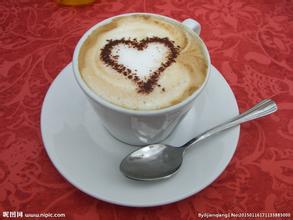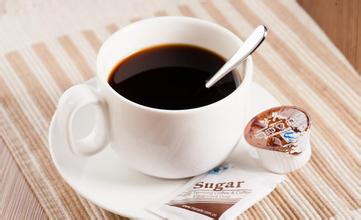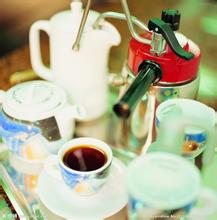Pure Salvadoran coffee without impurities Flavor Taste Manor Features Fine coffee Introduction
In January 1932, local elections began, and a large number of Communist Party candidates were elected, but they were not recognized by the government; the Communist Party of El Salvador decided to launch an uprising on the 22nd, but Martinez discovered it and immediately ordered the arrest of Communist Party leader Farah Bendo Marty. The leaderless farmers, armed with machetes, launched the uprising as scheduled, but failed under the crackdown by government forces, which immediately retaliated and slaughtered more than 30,000 rebellious farmers.
For 13 years after 1932, El Salvador was ruled by Martinez.
On May 19, 1934, El Salvador announced the establishment of diplomatic relations with Manchukuo, becoming the second country after Japan to recognize the regime.
After the outbreak of the Pacific War in 1941, El Salvador joined the anti-axis camp of Britain, the United States and other countries.
In April 1944, intellectuals and students launched a general strike because of economic paralysis.
In May 1945, Martinez stepped down and went into exile in Guatemala. After that, he went to live in Honduras and lived in El Salvador with mountains, plateaus and volcanoes, known as the "country of volcanoes". The Santa Ana active volcano is 2385 meters above sea level. it is the highest peak in the country; the northern part of the country is the Lompa Valley and the southern part is the narrow coastal plain.
El Salvador has a tropical climate with an annual average temperature of 28 ℃; November-April is the dry season, May-October is the rainy season; the coastal and lowland climate is hot and humid, and the mountain climate is cool; the annual precipitation in the mountains is more than 1800 mm, and the coastal zone is about 1000 mm. The national emblem of El Salvador was launched on September 15, 1912.
The national emblem is an equilateral triangle whose three yellow lines represent equality, truth and justice respectively. Five volcanoes rise between the Pacific Ocean and the Atlantic Ocean, symbolizing the five countries in Central America. The "pole of freedom" and the red "cap of freedom" stand high on the top of the mountain, emitting the light of freedom and liberation. In the golden light, September 15, 1821 is the day of El Salvador's independence, and the rainbow in the sky overflows with joy and hope. Five Central American federal flags revolve around the national emblem, expressing El Salvador's desire to reorganize the federation. At the bottom is a yellow ribbon with "God, Unity, Freedom" written in Spanish, green laurel branches and leaves around the periphery of the triangle, making the national emblem round, and the outermost golden Spanish with the name "the Republic of El Salvador in Central America."
In Cuscacbapa, El Salvador, packaged coffee beans are about to be exported to El Salvador. Coffee from El Salvador is a specialty of Central America, where it is light, aromatic, pure and slightly sour. Like Guatemala and Costa Rica, coffee in El Salvador is graded according to altitude, and the higher the altitude, the better the coffee. The best brand is Pipil, which is what the Azbec-Mayan (AztecMayan) called coffee, which has been approved by the American Organic Certification Society (Organic Certified Institute of America).
Another rare coffee is Pacamara, a hybrid of Pacas and Maragogype. The best place to produce the coffee is in western El Salvador, adjacent to Santa Ana, which is close to the border with Guatemala. Parkmara coffee is full of particles, when the flavor is not too strong in the early 1990s, guerrilla warfare greatly damaged the country's national economy, so that coffee production dropped from 3.5 million bags in the early 1970s to 2.5 million bags in 1990-1991. The eastern part of the country was the hardest hit by guerrilla warfare, with many farmers and workers forced to leave the manor. The shortage of funds has led to a sharp drop in coffee production, from 1200 kg per hectare in the past to less than 900kg per hectare today.
In addition, the government imposed an additional 15% tariff on exported coffee in 1986, that is, an additional 15% in addition to the existing 30% tax. Taxes, together with unfavorable exchange rates, have greatly reduced the export of coffee and the quality of coffee. The government finally realized the great role of coffee in the national economy, such as solving employment, earning foreign exchange and developing agriculture, so it privatized some coffee export industries in 1990, hoping to increase the income rate of coffee in the export market, the savanna climate. The plain area belongs to the tropical rain forest climate and the mountain area belongs to the subtropical forest climate. The average annual temperature is 25-28 ℃. The annual precipitation is more than 1800 mm in mountain areas and about 1000 mm in coastal areas. The rainy season is from May to October.
Don't underestimate El Salvador's coffee production. In its heyday, it was once the fourth largest coffee producer in the world, but decades of civil war almost dragged down the coffee industry. fortunately, the war has stopped in recent years, and the coffee industry has come back to life. The only benefit that the civil war brought to the Salvadoran country was that the farmers' fields were barren and failed to catch up with the most popular Katimo exposure train in the past two decades, thus preserving the ancient varieties of bourbon and Tibica, that is to say, El Salvador still uses the most traditional shade planting, which is of positive significance to the aroma of coffee. In 2005, the Salvadoran mixed-race Pacamara boasted in coe, which confused many international cup testers and did not know how to score it. It was never expected that this hybrid bean not only broke the mellow boundary of coffee, but also expanded the visibility of Salvadoran coffee.

Important Notice :
前街咖啡 FrontStreet Coffee has moved to new addredd:
FrontStreet Coffee Address: 315,Donghua East Road,GuangZhou
Tel:020 38364473
- Prev

Introduction to the characteristics of the manor producing area of Cuban crystal coffee with fragrant flavor in bitterness
The country is divided into 15 provinces, one special zone, and 168 cities under the province. [3] the names of the provinces are as follows: Pinar del Ro, Artemisa, Mayabeque, Provincia de la Habana, Matanzas, Cienfuegos, Cienfuegos,
- Next

Introduction to the characteristics of Nicaraguan Coffee Flavor Manor with different levels of Taste
Columbus arrived here in 1502 and reached the east coast of Nicaragua. In 1522, Spanish colonists began to conquer the region. The cities of Granada and Leon were founded in 1524. From then on, Nicaragua became a Spanish colony and came under the jurisdiction of the Governor's Office of Guatemala. The city of Leon developed into a political and cultural center; Granada became a commercial and agricultural center. In the later period of colonial rule
Related
- Detailed explanation of Jadeite planting Land in Panamanian Jadeite Manor introduction to the grading system of Jadeite competitive bidding, Red bid, Green bid and Rose Summer
- Story of Coffee planting in Brenka region of Costa Rica Stonehenge Manor anaerobic heavy honey treatment of flavor mouth
- What's on the barrel of Blue Mountain Coffee beans?
- Can American coffee also pull flowers? How to use hot American style to pull out a good-looking pattern?
- Can you make a cold extract with coffee beans? What is the right proportion for cold-extracted coffee formula?
- Indonesian PWN Gold Mandrine Coffee Origin Features Flavor How to Chong? Mandolin coffee is American.
- A brief introduction to the flavor characteristics of Brazilian yellow bourbon coffee beans
- What is the effect of different water quality on the flavor of cold-extracted coffee? What kind of water is best for brewing coffee?
- Why do you think of Rose Summer whenever you mention Panamanian coffee?
- Introduction to the characteristics of authentic blue mountain coffee bean producing areas? What is the CIB Coffee Authority in Jamaica?

